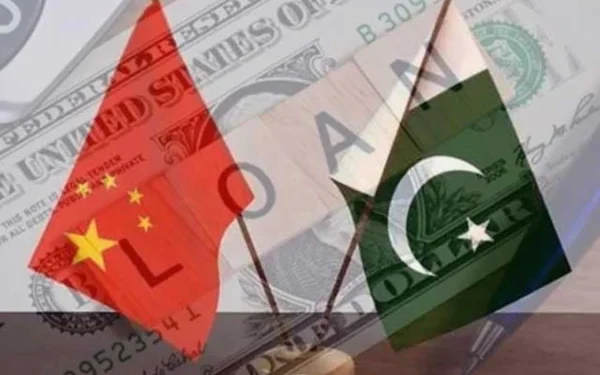Introduction: Renewed Efforts to Manage Pakistan’s Foreign Debt
In a significant development, Pakistan has decided to once again formally raise the issue of debt rescheduling with Chinese banks in an effort to ease the country’s mounting financial pressures. The upcoming discussions are expected to take place during the sidelines of the International Monetary Fund (IMF) annual meetings in Washington, where Finance Minister Muhammad Aurangzeb will engage in critical talks with several international financial stakeholders.
The decision reflects Islamabad’s urgent need to manage its external debt obligations and bridge the foreign funding gap at a time when economic challenges continue to weigh heavily on the country’s financial outlook.
Background: Pakistan’s Struggle with External Debt
The Need for Debt Rescheduling
Pakistan’s external debt has soared in recent years, reaching precarious levels that have sparked concerns among economists and policymakers. A significant portion of this debt is owed to Chinese banks, largely stemming from projects under the China-Pakistan Economic Corridor (CPEC), part of China’s Belt and Road Initiative (BRI).
Amid foreign exchange shortages and sluggish economic growth, Pakistan has been seeking to negotiate more favorable terms with its creditors, including debt rescheduling and rollovers. Successfully achieving this could ease short-term repayment pressures and provide breathing room for the economy.
Finance Minister Muhammad Aurangzeb’s Crucial Diplomatic Mission
Scheduled Meetings with Key International Figures
According to government sources, Finance Minister Muhammad Aurangzeb is expected to meet his Chinese counterpart during his six-day visit to the United States. The meeting is scheduled for Wednesday next week, where Pakistan will request a rescheduling of approximately $3.4 billion in loans for at least two years.
This meeting is part of a broader diplomatic push, with Aurangzeb also scheduled to meet:
- IMF Managing Director Kristalina Georgieva
- US Assistant Secretary of the Treasury
- Saudi Finance Minister Muhammad Al-Jadaan
- Asian Development Bank (ADB) President Masato Kanda
- World Bank Group President Ajay Banga
- World Bank Asia Region Vice President Martin Reiser
- Chairperson of the US Exim Bank
- Secretary General of the Climate Vulnerable Forum, Muhammad Nasheed
The Finance Minister will be accompanied by a high-level delegation, including the Finance Secretary, the Governor of the State Bank of Pakistan, and the Secretary of Economic Affairs.
Debt Rescheduling with China: Past Attempts and Future Prospects
Previous Request by Ishaq Dar
It is important to recall that Deputy Prime Minister Ishaq Dar had also attempted to secure debt relief from Chinese authorities during his visit to Beijing earlier this year. However, those discussions did not yield any concrete results, with Chinese financial institutions hesitant to commit to long-term rescheduling agreements.
Given the strategic nature of China-Pakistan relations, officials in Islamabad remain cautiously optimistic that persistent diplomatic engagement could eventually lead to a breakthrough.
Strategic Importance of Chinese Debt
China is Pakistan’s largest bilateral creditor, holding around 30% of its external debt. A favorable rescheduling deal with Chinese banks would be crucial not only for Pakistan’s fiscal stability but also for maintaining investor confidence during a time of economic turbulence.
Other Key Agendas on the Finance Minister’s Washington Visit
Meetings with US Financial Officials
Apart from China, Pakistan’s economic team plans to engage extensively with American financial institutions. The Finance Minister is scheduled to meet senior officials from the US Treasury Department, with discussions likely to focus on:
- Financial assistance programs
- Investment opportunities
- Collaboration on Pakistan’s ongoing privatization initiatives
Moreover, a meeting with the Chairperson of the US Exim Bank is also on the cards. The US Exim Bank had previously offered a $1 billion loan for the Reko Diq project, a significant mining endeavor in Pakistan’s Balochistan province. However, tensions arose when the US Exim Bank requested preferential creditor status, a demand Islamabad was reluctant to entertain.
Pushing for Development Finance Cooperation
Officials indicate that the Finance Minister may also engage with the US International Development Finance Corporation (DFC) to explore possibilities of expanding development finance and investment in Pakistan’s privatization program. Securing foreign investment remains a cornerstone of Pakistan’s broader economic revival strategy.
Engagements with Multilateral Financial Institutions
IMF Annual Meetings Participation
Pakistan’s delegation will be active participants at the IMF’s annual meetings, where Finance Minister Aurangzeb will also join a panel discussion on medium-term revenue mobilization. This forum will provide Pakistan an opportunity to showcase its reform efforts and commitment to improving its fiscal health.
Meetings with World Bank and ADB Leadership
Further strengthening ties with multilateral financial institutions, the Finance Minister will meet:
- Ajay Banga, President of the World Bank Group
- Masato Kanda, President of the Asian Development Bank (ADB)
- Martin Reiser, Vice President of World Bank’s Asia Region
These meetings will focus on securing future project financing, technical assistance, and policy advice as Pakistan aims to stabilize its economy and push forward key development projects.
Pakistan’s Broader Economic Challenges
Bridging the Foreign Funding Gap
Pakistan is faced with an urgent need to bridge a significant foreign funding gap estimated at around $6 billion for the current fiscal year. Debt rescheduling, new loan agreements, and foreign direct investment (FDI) are vital components in achieving this goal.
Privatization Push
The government is also aggressively pursuing the privatization of state-owned enterprises (SOEs), including Pakistan International Airlines (PIA) and various energy companies, to reduce fiscal deficits and improve efficiency. Successful foreign investment in these privatization initiatives could inject much-needed capital into the economy.
IMF Support
Pakistan is in talks with the IMF for a new Extended Fund Facility (EFF) program following the conclusion of the Stand-By Arrangement (SBA) earlier this year. The outcome of the Finance Minister’s meetings with IMF officials, particularly Managing Director Kristalina Georgieva, will be crucial in determining the future trajectory of IMF assistance.
Conclusion: High-Stakes Diplomacy for Pakistan’s Economic Future
The Finance Minister’s trip to Washington represents a critical moment for Pakistan as it seeks to navigate one of the most challenging economic periods in its history. Successful debt rescheduling with China, positive engagements with the IMF, and strengthened ties with multilateral lenders and American institutions could significantly improve Pakistan’s financial outlook.
However, failure to secure tangible results could exacerbate economic vulnerabilities and add to the existing challenges facing the government. As Pakistan’s economic team engages in these high-level negotiations, the stakes could not be higher for the country’s financial stability and long-term growth prospects.

























